 There’s mutterings of some discontent around MySpace, the insanely popular social site.
There’s mutterings of some discontent around MySpace, the insanely popular social site.
Billy Bragg, well known in the UK for his rebel-rousing tunes, has taken a stance against MySpace by removing his music in protest of MySpace’s Terms and Conditions.
Bragg and ‘his people’ posted a comment on their MySpace blog (we do love it when a companies tools are used against them), decrying what they say are completely unreasonable terms.
TERMS: (as of 17th March 2006)
By displaying or publishing (“posting”) any Content, messages, text, files, images, photos, video, sounds, profiles, works of authorship, or any other materials (collectively, “Content”) on or through the Services, you hereby grant to MySpace.com, a non-exclusive, fully- paid and royalty-free, worldwide license (with the right to sublicense through unlimited levels of sublicensees) to use, copy, modify, adapt, translate, publicly perform, publicly display, store, reproduce, transmit, and distribute such Content on and through the Services. This license will terminate at the time you remove such Content from the Services. Notwithstanding the foregoing, a back-up or residual copy of the Content posted by you may remain on the MySpace.com servers after you have removed the Content from the Services, and MySpace.com retains the rights to those copies.
The summary? MySpace can exploit the music/content that is put on the site, worldwide, without payment – and sub-license it infinitely.
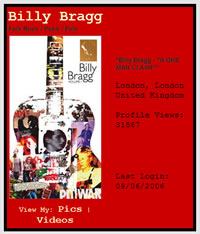 The original Bragg posting was made back in mid-may, but was highlighted when it was picked up by the New York Daily News this week.
The original Bragg posting was made back in mid-may, but was highlighted when it was picked up by the New York Daily News this week.
Since then, there have been many announcing the impending death of MySpace with thoughts that all musicians would follow suit and MySpace would implode. As yet we haven’t seen any signs of this.
It appears that MySpace didn’t intend to own everything and are putting it down to sloppy lawyering and say they intend to straighten things out. MySpace spokesman Jeff Berman, told the New York Daily News, “Because the legalese has caused some confusion, we are at work revising it to make it very clear that MySpace is not seeking a license to do anything with an artist’s work other than allow it to be shared in the manner the artist intends,” adding the all important. “Obviously, we don’t own their music or do anything with it that they don’t want.”
There’s a difficult balance to be had here. Clearly MySpace is putting out millions of musicians tracks daily and needs to be able to do this, without having a separate contract with each artist. Running alongside this need is the equally important need not to terrify the musicians into thinking that all of their music are belong to us (MySpace).
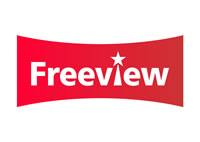 We wouldn’t normally bore you with tales of how many more percent of the UK population have joined the Digital TV-owning army, but this one is a significant one.
We wouldn’t normally bore you with tales of how many more percent of the UK population have joined the Digital TV-owning army, but this one is a significant one.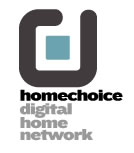 TV over ADSL First
TV over ADSL First Additional TV Sets – Ongoing problems
Additional TV Sets – Ongoing problems Mobile phone companies have been striving to develop high resolution displays to capitalise on the potential of multi-media content. This week, Samsung joined the growing list of manufacturers who have created a true VGA display suitable for mobile phones.
Mobile phone companies have been striving to develop high resolution displays to capitalise on the potential of multi-media content. This week, Samsung joined the growing list of manufacturers who have created a true VGA display suitable for mobile phones. VGA has been available on handheld devices for a while now. Toshiba debuted the first PDA with VGA display (the e805) back in December 2003 and the first VGA mobile, Sharp’s 904SH, launched in Japan in April this year. The latter has four times the resolution of the average QVGA (Quarter VGA) display and face recognition functions that authenticates users by their facial features.
VGA has been available on handheld devices for a while now. Toshiba debuted the first PDA with VGA display (the e805) back in December 2003 and the first VGA mobile, Sharp’s 904SH, launched in Japan in April this year. The latter has four times the resolution of the average QVGA (Quarter VGA) display and face recognition functions that authenticates users by their facial features.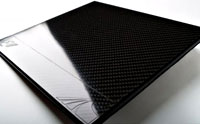 Designed exclusively for idiots with more money than sense, the official Formula 1 carbon and leather mouse mat can now be bought online for just £260 ($489, €380)
Designed exclusively for idiots with more money than sense, the official Formula 1 carbon and leather mouse mat can now be bought online for just £260 ($489, €380) The blurb on the Formula 1 webpage insists that the carbon mouse mat was designed “using state of the art automotive 3D modelling software.”
The blurb on the Formula 1 webpage insists that the carbon mouse mat was designed “using state of the art automotive 3D modelling software.” (There is a rather better looking all-carbon version available for ‘just’ £250, but this won’t work with an optical mouse).
(There is a rather better looking all-carbon version available for ‘just’ £250, but this won’t work with an optical mouse).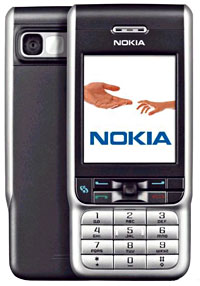 Sad but (supposedly) true: a new study by Nokia has found that over one in five mobile owners said they’d find losing their phone more upsetting than their wallet, credit cards and – unbelievably – even their wedding ring.
Sad but (supposedly) true: a new study by Nokia has found that over one in five mobile owners said they’d find losing their phone more upsetting than their wallet, credit cards and – unbelievably – even their wedding ring.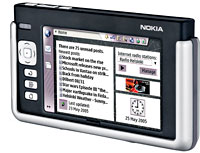 Nokia commissioned the research in 11 countries around the globe to discover people’s attitudes towards current and future mobiles, and generally found that people *heart* the things the planet over.
Nokia commissioned the research in 11 countries around the globe to discover people’s attitudes towards current and future mobiles, and generally found that people *heart* the things the planet over.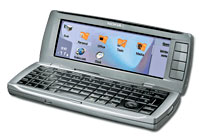 Surfing on the move
Surfing on the move New research from messaging security specialists Proofpoint has revealed that more than a third of blue-chip companies in both the US and UK hire dedicated staff to snoop on their employee’s emails.
New research from messaging security specialists Proofpoint has revealed that more than a third of blue-chip companies in both the US and UK hire dedicated staff to snoop on their employee’s emails.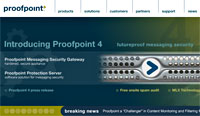 With companies becoming more concerned about internal security breaches rather than external threats, 34 per cent of companies claimed that their business was impacted by the exposure of sensitive or embarrassing information over the last year.
With companies becoming more concerned about internal security breaches rather than external threats, 34 per cent of companies claimed that their business was impacted by the exposure of sensitive or embarrassing information over the last year. In a few years time, kids will be clutching their sides and laughing at the thought that their parents used to watch TV on massive great boxes that filled up half the living room.
In a few years time, kids will be clutching their sides and laughing at the thought that their parents used to watch TV on massive great boxes that filled up half the living room. Style over picture
Style over picture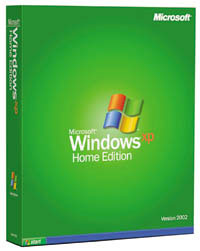 If you’re still running Ye Olde versions of Microsoft Windows XP Service Pack 1 (SP1) and Service Pack 1a (SP1a), you’d better get your modem in gear as Microsoft will be ending support for these products on 10 October, 2006.
If you’re still running Ye Olde versions of Microsoft Windows XP Service Pack 1 (SP1) and Service Pack 1a (SP1a), you’d better get your modem in gear as Microsoft will be ending support for these products on 10 October, 2006.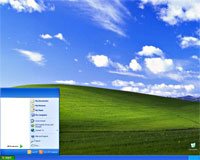 This added USB 2.0 support and a Set Program Access and Defaults utility, letting users control the default application for activities such as web browsing and instant messaging.
This added USB 2.0 support and a Set Program Access and Defaults utility, letting users control the default application for activities such as web browsing and instant messaging.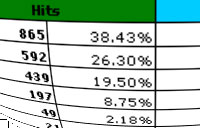 Google is ready to shove its size nines deep into Microsoft territory with the launch of a free Web-based spreadsheet program, Google Spreadsheets.
Google is ready to shove its size nines deep into Microsoft territory with the launch of a free Web-based spreadsheet program, Google Spreadsheets. He explained that the program’s main goal is to make it easier for family, friends or co-workers to read and work on the same spreadsheet from different computers at different times, letting authorised users add and edit data without having to keep sending e-mail attachments back and forth.
He explained that the program’s main goal is to make it easier for family, friends or co-workers to read and work on the same spreadsheet from different computers at different times, letting authorised users add and edit data without having to keep sending e-mail attachments back and forth. Nokia took a step into the world of online content delivery today with the launch of a new Website specialising in downloadable games for its N-Gage device. Gamers can download time-limited demos of games such as One and Pathway to Glory before purchasing at between 19.99 and 29.99 euros.
Nokia took a step into the world of online content delivery today with the launch of a new Website specialising in downloadable games for its N-Gage device. Gamers can download time-limited demos of games such as One and Pathway to Glory before purchasing at between 19.99 and 29.99 euros.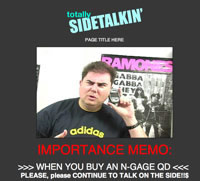 While the concept of side-talking may fuel nerd in-jokes for some time to come (see
While the concept of side-talking may fuel nerd in-jokes for some time to come (see